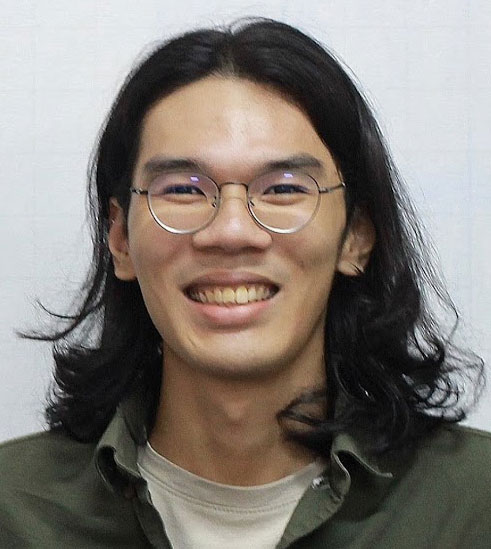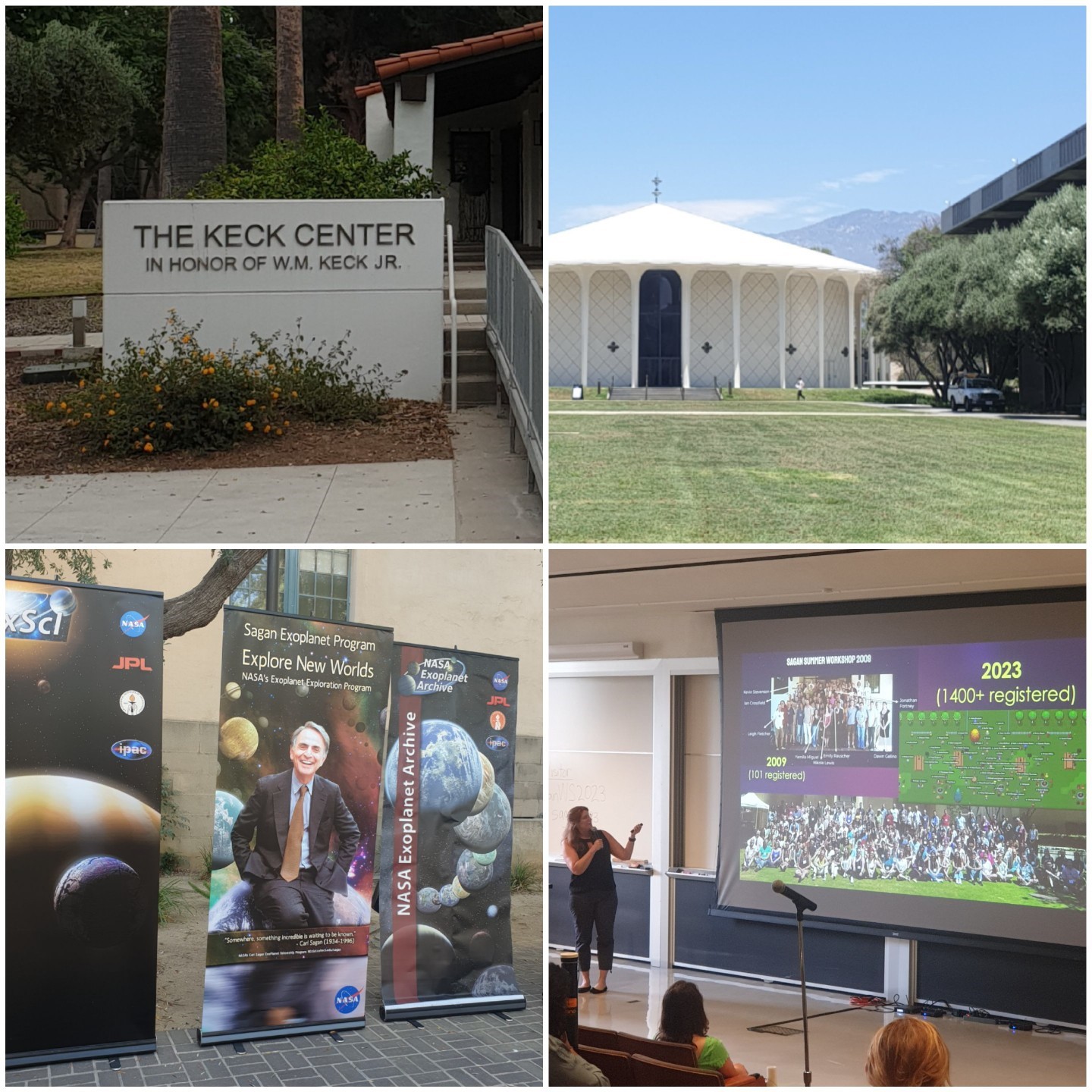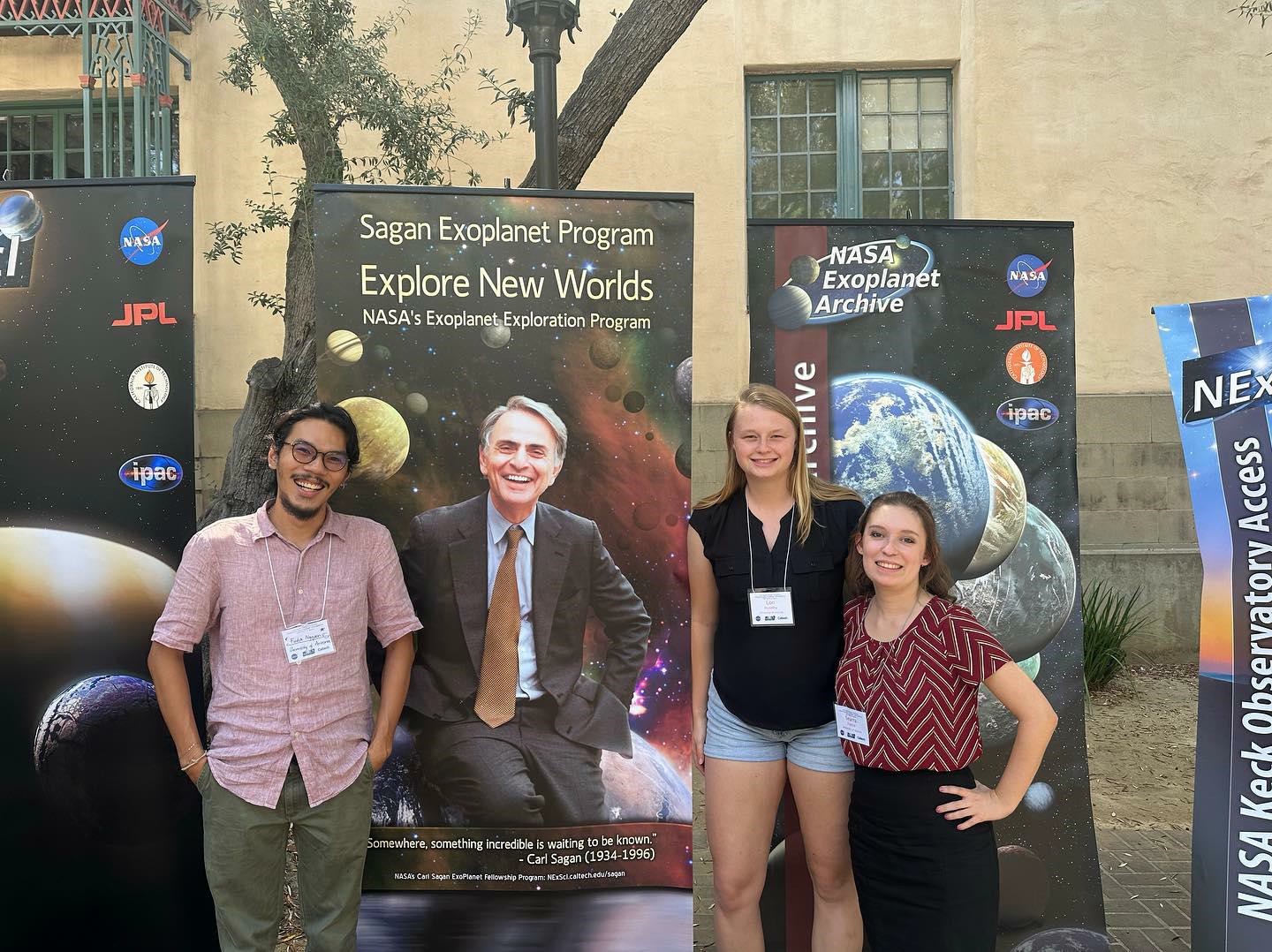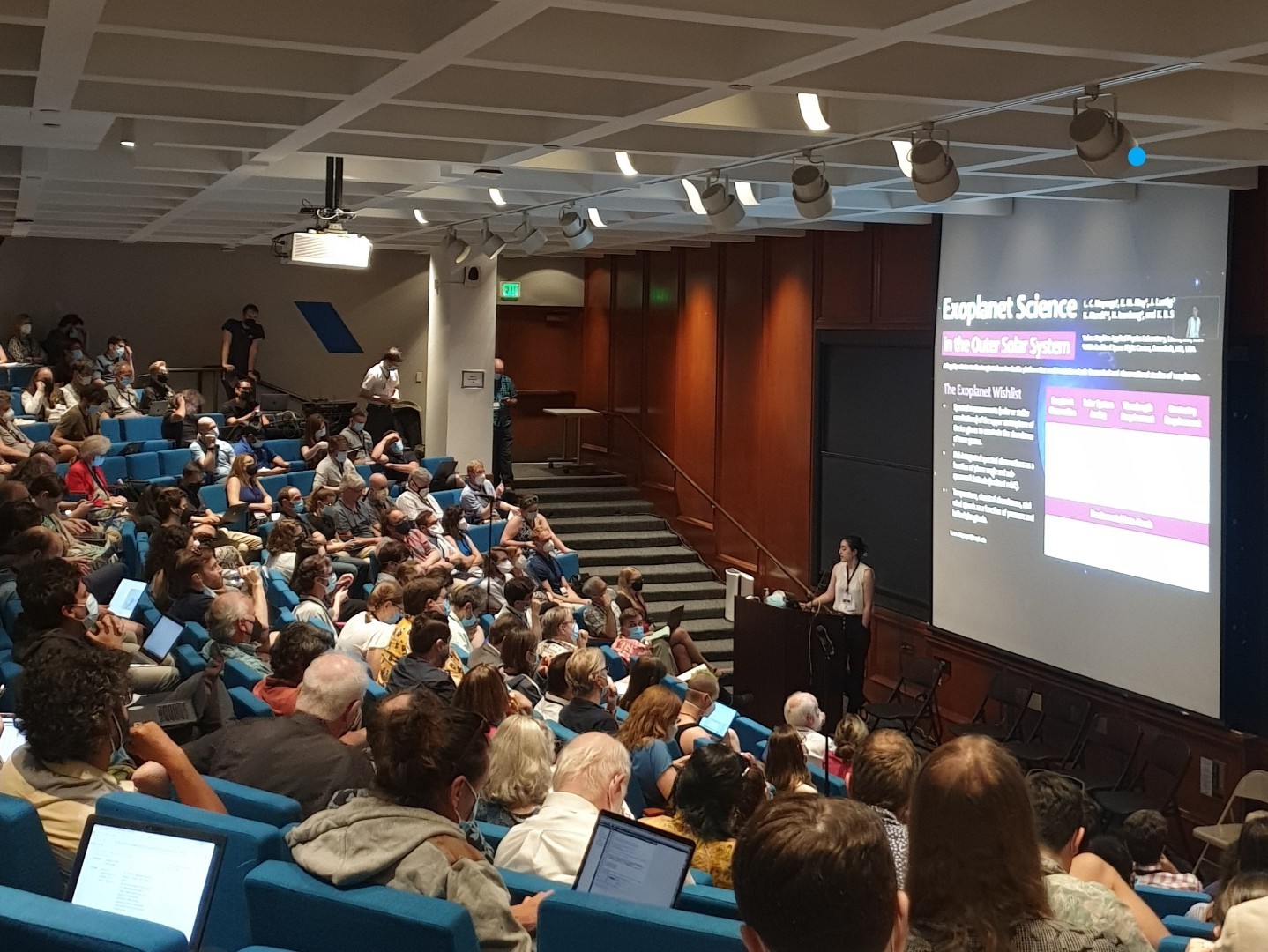The Shirley D. Curson Education Plus Fund in Planetary Sciences and LPL (formerly the Shandel Education Plus Fund) was established by Shirley Curson, a generous donor and friend of LPL, for the purpose of supporting travel expenses outside the state of Arizona during summer break. The award is open to students in the Department of Planetary Sciences and Lunar and Planetary Laboratory who propose to fund study, museum visits, special exhibits, seminars, instruction, competitions, research and other endeavors that are beyond those provided by the normal campus environment and are not part of the student’s regular curriculum during the recipient’s school year.
2023 Recipient: Fuda Nguyen

Fuda is an LPL graduate student, working with advisor Dániel Apai. He used Curson funds to attend the 2023 Sagan Exoplanet Summer Workshop, Characterizing Exoplanet Atmospheres: The Next Twenty Years, which will be held at CalTech, July 24-28, 2023. He also attended a half-day (July 29) workshop on EXCALIBUR, a new tool for comparative planetology.
Fuda's research focuses on the monitoring of directly imaged exoplanets and substellar objects such as L and T brown dwarfs in order to understand their atmospheric physics and their formation. He writes that the Sagan Workshop "is an excellent opportunity to learn more about theoretical understanding of exoplanet and solar system planet atmospheres, the current and future observations of exoplanet atmospheres through direct imaging and transmission spectroscopy, the 1D and 3D toolkits used to model these atmospheres, as well as exciting progress in the field and community of researchers."
I was delighted to receive support from the Curson Travel Award to attend and present my work at the 2023 Sagan Exoplanet Summer Workshop - Characterizing Exoplanet Atmospheres: The Next Twenty Years at Caltech, Pasadena, CA. The Sagan Summer workshop is annually hosted by the NASA Exoplanet Science Institute (NExSci) to discuss cutting-edge exoplanet-planetary science research as well as practical hands-on training in coding, data analysis, and theoretical modeling. This year’s topic focuses on exoplanet atmosphere—a burgeoning research field in astrophysics and planetary science, incredibly relevant to my own research interests. It was a humbling experience to present my work, attend lectures given by the world’s experts on exoplanet atmosphere, and see how James Webb Space Telescope data are teaching us so much new science on the atmospheres of strange worlds out there.
At the Sagan Summer Workshop, I presented a poster on my research as a first-year graduate student with Professor Dániel Apai on the topic Storms and Vortices on Luhman 16 AB: Evidence of Rotational Modulation and k=2 Wavenumbers. We have the longest photometric monitoring data set thus far of the brown-dwarf binary Luhman 16 AB—extending over 1000 hours, showing incredible variability via rotational modulation of a “breathing” atmosphere, with cloud decks pulsating in giant circulation cells creating the observed periodic change in brightness. In this work, I showed that the photometric variability can be explained using planetary-scale waves—waves periodic on the rotational timescale which act in tandem with the zonal circulation of the atmospheres. Via our comparison of zonal circulation on Solar System planets and Luhman 16 AB, we show that the k=1 and k=2 waves in Luhman 16 AB (corresponding to periods of ~5 hours and ~2.5 hours) might arise from different latitudes in the atmospheres, similar to how the strongest zonal winds on Jupiter and Saturn only arise from the equatorial region. This work will help contribute to the understanding of brown dwarf atmospheres—using Solar System planets as a source of “ground truths”—and potentially advance the future characterization of directly-imaged exoplanets and giant exoplanets. A publication of our work (Fuda et al.) is currently in preparation.
Attending the Sagan Summer Workshop—my first large conference in graduate school—was both an academically exciting and personally rewarding experience. Presenting my work to peers, colleagues, and senior scientists was truly an excellent way to learn, grow, and receive valuable feedback. Moreover, I have learned a great deal about spectroscopy techniques in exoplanet atmosphere, learned to use modeling software to fit the transmission spectra observation of exoplanets, and derived the planet’s physical properties. Being at Pasadena has personally helped me foster valuable contacts with scientists at JPL and Caltech, resulting in networks and professional opportunities I wouldn’t be exposed to otherwise. (It also does not hurt to escape the Tucson heat even just for a bit!). I’m grateful for the Curson Travel Award support in attending the Sagan workshop, and all the wonderful professional development this has brought about.




